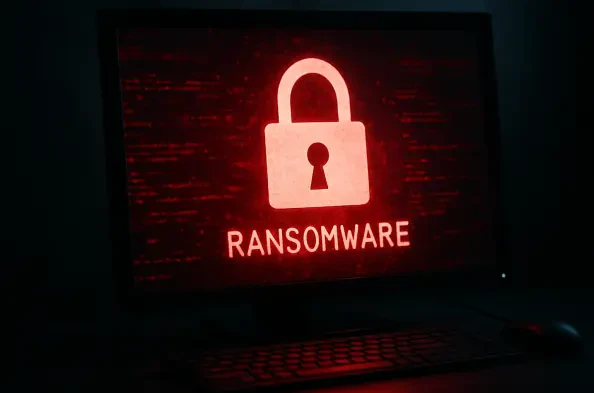In an era where cybersecurity threats loom larger than ever, a recent incident involving Volvo Group, a global powerhouse in commercial vehicle manufacturing, has brought the dangers of third-party vulnerabilities into sharp focus, highlighting critical risks in vendor partnerships. A ransomware attack on Miljödata, a human resources software provider for Volvo Group, compromised sensitive employee data, exposing the inherent risks embedded in such collaborations. This breach, affecting the company’s North American workforce, serves as a wake-up call for organizations worldwide to reevaluate their approach to third-party risk management. While Volvo Group’s internal systems remained untouched, the incident underscores how attackers can exploit weaker links in the supply chain to access valuable information. The fallout from this event raises pressing questions about the adequacy of current security measures and the steps needed to protect personal data in an increasingly interconnected corporate landscape.
Unpacking the Ransomware Incident at Miljödata
The ransomware attack on Miljödata, Volvo Group’s HR software vendor, struck with alarming precision, encrypting data and disrupting operations on a significant scale. Discovered after suspicious activity was flagged by the vendor’s cybersecurity team a few days following the initial compromise, the breach revealed a troubling reality: sensitive personal information, including names and Social Security numbers of Volvo Group employees, may have been accessed by unauthorized parties. Fortunately, critical financial data such as payroll or bank account details remained secure, and the attack did not extend to Volvo Group’s own IT infrastructure. However, the potential exposure of Social Security numbers alone poses a severe risk of identity theft and fraud for affected individuals. This incident highlights how quickly a cyberattack can escalate when targeting a third-party provider, often catching even well-prepared organizations off guard due to gaps in vendor security protocols.
Further investigation into the breach, completed in a matter of weeks, confirmed the scope of the data exposure and prompted immediate action from both Miljödata and Volvo Group. Miljödata enlisted external cybersecurity experts to conduct a forensic analysis, aiming to understand the attack’s entry point and strengthen defenses against future threats. Meanwhile, Volvo Group prioritized transparency by notifying affected employees and providing clear guidance on protective measures. The fact that the breach was confined to Miljödata’s systems offers some relief, but it also emphasizes a broader concern: third-party vendors can serve as a backdoor for attackers seeking to exploit larger organizations. This event is a stark reminder that even robust internal security is insufficient if external partners lack equivalent protections, pushing companies to rethink their vendor oversight strategies.
Broader Implications for Third-Party Risk Management
The breach at Miljödata is not an isolated incident but rather a reflection of a growing trend in cybersecurity where attackers increasingly target supply chain partners to infiltrate larger entities. This tactic allows cybercriminals to bypass the often fortified defenses of major corporations by exploiting weaker links in the ecosystem. For Volvo Group, the exposure of employee data through a vendor underscores the urgent need for stringent security standards across all external partnerships. Industry experts have long warned about the cascading effects of third-party vulnerabilities, and this case exemplifies how a single breach can ripple through an organization, causing reputational damage and financial risks. Companies must now prioritize comprehensive vendor audits and enforce rigorous cybersecurity requirements to mitigate such threats.
Beyond immediate damage control, the incident serves as a catalyst for reevaluating how organizations approach third-party risk management on a systemic level. The consensus among cybersecurity professionals is that proactive measures, such as regular security assessments and contractual obligations for vendors to maintain high standards, are no longer optional but essential. Volvo Group’s response, including a thorough review of its vendor management policies, sets a precedent for other corporations to follow. Additionally, the breach highlights the importance of transparency in handling such incidents, as timely communication with affected parties can help rebuild trust. As cyber threats continue to evolve, fostering a culture of accountability and collaboration between companies and their vendors will be critical to safeguarding sensitive data in the long term.
Steps Taken and Lessons Learned
In the aftermath of the ransomware attack, both Volvo Group and Miljödata took decisive steps to address the breach and support those impacted. Miljödata focused on bolstering its security infrastructure with the help of external experts, while Volvo Group offered affected employees an 18-month subscription to a comprehensive identity protection service. This service includes credit monitoring and dark-web surveillance to detect potential misuse of personal information. Employees were also advised to monitor their financial accounts closely and take advantage of free credit reports or fraud alerts. Volvo Group’s dedicated People Services team stood ready to assist with any concerns, reflecting a commitment to minimizing harm and maintaining trust during a challenging time.
Reflecting on the incident, the key takeaway is the undeniable importance of robust vendor oversight in preventing similar breaches. The exposure of sensitive data through a third-party provider revealed critical gaps that many organizations may overlook until a crisis emerges. Volvo Group’s swift and transparent response, coupled with enhanced protective measures, demonstrated a proactive stance in addressing the fallout. The incident also served as a powerful lesson for global companies to integrate stringent cybersecurity protocols into their vendor relationships. By fortifying these partnerships and adopting comprehensive risk management frameworks, businesses can better shield themselves from indirect cyber threats that have proven so disruptive in this case.






